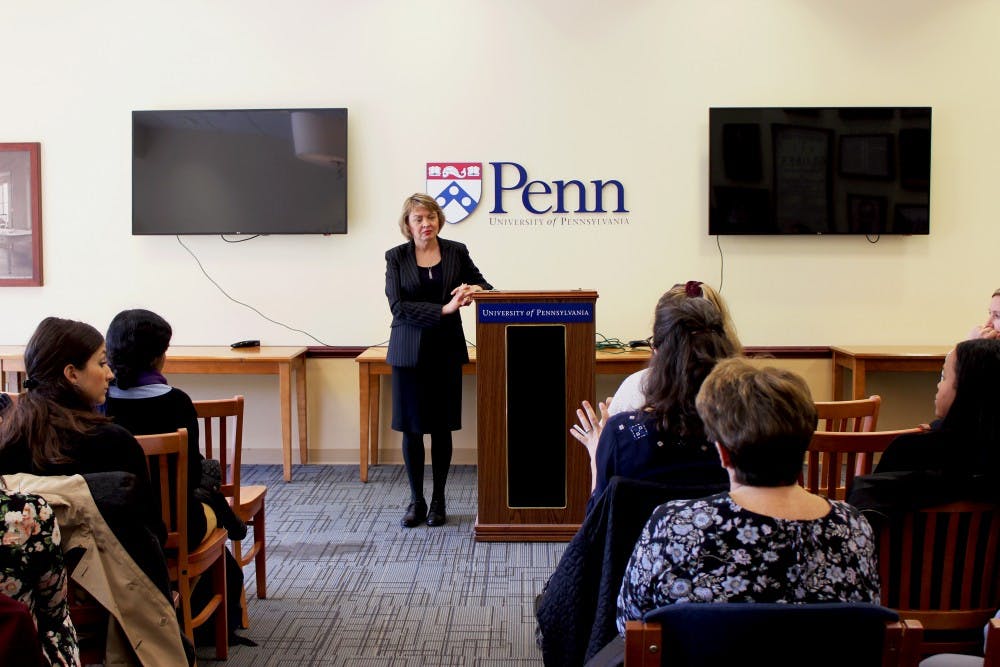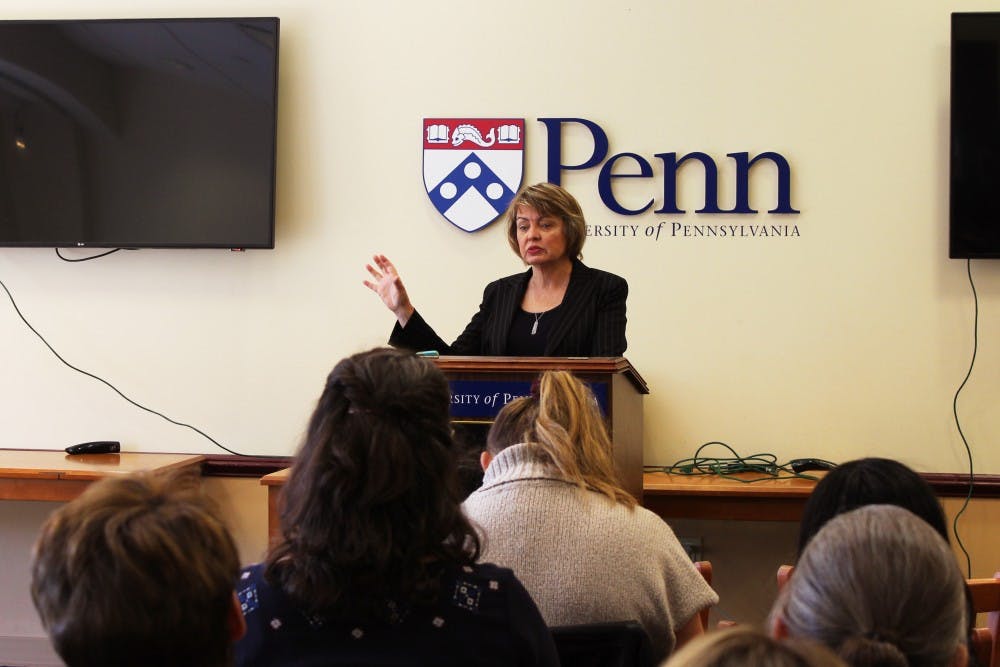
On Wednesday, Executive Director of Penn's Ortner Center of Violence & Abuse in Relationships Susan Sorenson spoke to attendees on the past and future of how universities address sexual assault.
Sorenson, who is also a professor in the School of Social Policy & Practice, spoke about historical views of sexual assault and how these views have changed over time, particularly on college campuses.
"We’re at an unusual time because sexual assault has been in the news and a topic of conversation for over two years," Sorenson said, citing coverage of President Donald Trump's Access Hollywood tapes, Bill Cosby, Harvey Weinstein, Louis C.K., Brett Kavanaugh, and others.
Sorenson spoke about the way sexual assault laws have changed over time, saying that “laws are a reasonable reflection of social norms.” She traced these laws from Hammurabi’s Code in which rape was considered property damage to the woman’s father, to U.S. sexual assault law reforms in the 1970s and 80s, and all the way through to the present day.
“The vestiges of that history are still there, so it is a very difficult issue to overcome, but … having the conversations, bringing it out in the open, describing the behavior, is so important,” Mary-Elaine Perry, the Title IX bias coordinator at St. Joseph’s University, said.
“We do work at a different campus, and we’re seeing the same things. It’s everywhere.”
Sorenson said women and anti-sexual assault activists should remain optimistic and look toward the future. “We must take the long route,” she said. “If we go from incident to incident to incident, it’s too easy to get demoralized and to lose hope.”

The event took place amid shifting federal policy over sexual assault on college campuses.
Sorenson explained the progress made regarding college sexual assault since students filed a Title IX complaint against Yale for "failure to eliminate a hostile sexual environment on campus" in 2011. This action moved campus sexual assault investigations from a criminal investigation to a civil one, where accusers no longer needed to prove their cases “beyond a reasonable doubt,” but must instead present a “preponderance of evidence.” These changes occurred after a letter was written by the Obama administration.
Earlier this year, Secretary of Education Betsy DeVos prepared to change these guidelines and reverse many other Obama-era policies that hold universities more responsible for sexual misconduct. Under these new regulations, the evidence against students accused of misconduct will need to be “clear and convincing,” possibly dissuading victims from coming forward.
“I’ve always been really interested in women’s issues and the #MeToo movement is a powerful thing that I can really relate to," Van Pelt Library service assistant Patty Gilson, who attended the event, said. "Most of the women I know have been assaulted or harassed in some way, so I wanted to just learn a little bit more about how things are moving on in the future.”
Sorenson and attendees discussed how they envision sexual assault on college campuses in upcoming years.
“I think people are a lot more cognizant and careful," Gilson said. "The administrative departments are highly aware of this issue and seem to be taking good steps to protect the female students.”
This event was part of Penn’s Diversity Lecture Series and was sponsored by the Office of Affirmative Action and Equal Opportunity Programs.
To close, Sorenson said she had six words for the audience: “Safe daughters. Confident women. Strong society.”
The Daily Pennsylvanian is an independent, student-run newspaper. Please consider making a donation to support the coverage that shapes the University. Your generosity ensures a future of strong journalism at Penn.
Donate







